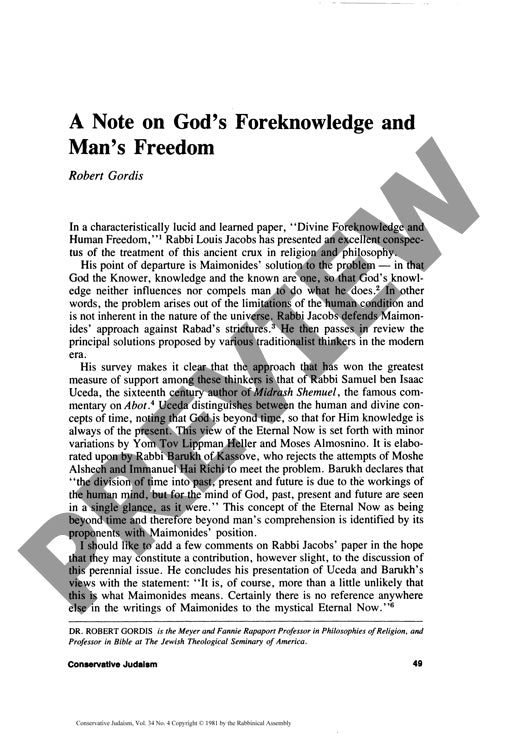A Note on Gods Foreknowledge and Mans Fr
Couldn't load pickup availability
The seeming contradiction between divine foreknowledge and human free will has challenged Jewish philosophical thought for centuries. Rabbi Louis Jacobs' recent examination of this theological paradox prompts a critical reassessment of traditional approaches, particularly Maimonides' influential solution that divine knowledge exists beyond human comprehension through the unity of knower, knowledge, and known. Drawing on comprehensive analysis of traditionalist thinkers, notably Rabbi Samuel ben Isaac Uceda's distinction between human and divine temporal concepts, the investigation reveals how the "Eternal Now" - where God exists beyond time's constraints - offers a compelling framework for resolution. Contrary to Jacobs' rejection of mystical readings of Maimonides, the boundary between rationalist and mystical interpretation proves more permeable than conventionally assumed. A novel rational argument emerges through analogical reasoning about temporal perception across different life spans: for an eternal deity, all time collapses to instantaneity, rendering "foreknowledge" conceptually meaningless. While this paradox parallels secular philosophical debates on determinism versus free will, Judaism's fundamental commitment to moral freedom persists independent of philosophical resolution.

More Information
-
Physical Description
-
Publication Information
Published 1981
ISBN
-
Publication Credits
Robert Gordis

